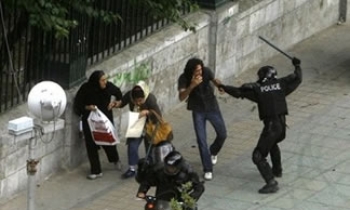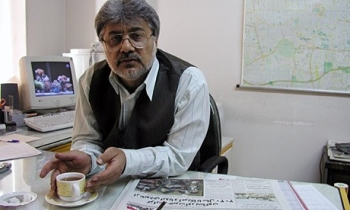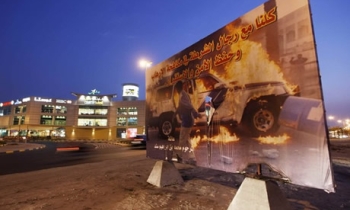Reporters sans Frontières (RSF) has voiced its full solidarity with journalists in Jammu & Kashmir, who have undergone one of the worst periods in decades since the outbreak of protests in early August. The press freedom violations have taken a heavy toll, with a cameraman killed, more than 30 journalists beaten by security forces, local TV stations censored and newspapers unable to publish normally because of a curfew.
"The government in New Delhi cannot continue to ignore the fact that the press in Kashmir has been subject to a state of exception that violates the Indian constitution," Paris-based RSF said in a statement. "We call on it to react quickly to ensure that the violence stops, that the censorship is completely lifted and that the local media are given full guarantees. The police violence in which a cameraman was killed and 32 journalists were injured must also be investigated."
RSF urged authorities to carry out a thorough investigation into the death of local TV cameraman Javed Ahmed Mir, 35, who was shot while covering a demonstration near Bagh-e-Mehtab on August 13. According to the BBC, as well as being a cameraman, he also worked as a textile worker to help support his wife and three children.
The curfew imposed on August 24 was lifted on September 2 after a political agreement was reached about the Amarnath land transfer dispute, which triggered the violent demonstrations. A return to normal should allow the local media to resume operations.
But the toll was very heavy. The inhabitants of Kashmir, especially those in the Srinagar region, were deprived of local and national dailies for a week, while local TV stations were forbidden to report news. Some cable TV operators stopped carrying national and international news channels in protest against the censorship. Many people also complained about disruption of their mobile phone texting services.
Thirty-two journalists have been beaten by members of the security forces since the start of the demonstrations and at least 10 of them were hospitalised. Three journalists—Aaj Tak TV bureau chief Ashraf Wani, NDTV cameraman Amir Bhat and Daily News & Analysis (DNA) correspondent Ishfaq-ul-Hassan—were attacked by demonstrators.
According to a press release published by a group of Kashmiri journalists, there are strong grounds for suspecting that the local and national authorities made no attempt to prevent the violence against the press.
"When Governor NN Vohra, was informed about these attacks, he pleaded ignorance and, in presence of some members of press and the secretary of information, instructed the Director General of Police not to let such attacks continue," the release said. "However, to present just one instance, the attacks continued the next day, confirming our suspicion that the attacks are carried out by design."
Members of the Central Reserve Police Force (CRPF), which is under the control of the government in New Delhi, were responsible for most of the police violence. It was CRPF members, for example, who beat Asif Qureshi of Star News on August 25, and Showkat Ahmed, the Rising Kashmir daily newspaper's system administrator, when he was on the streets with a pass on August 31.









